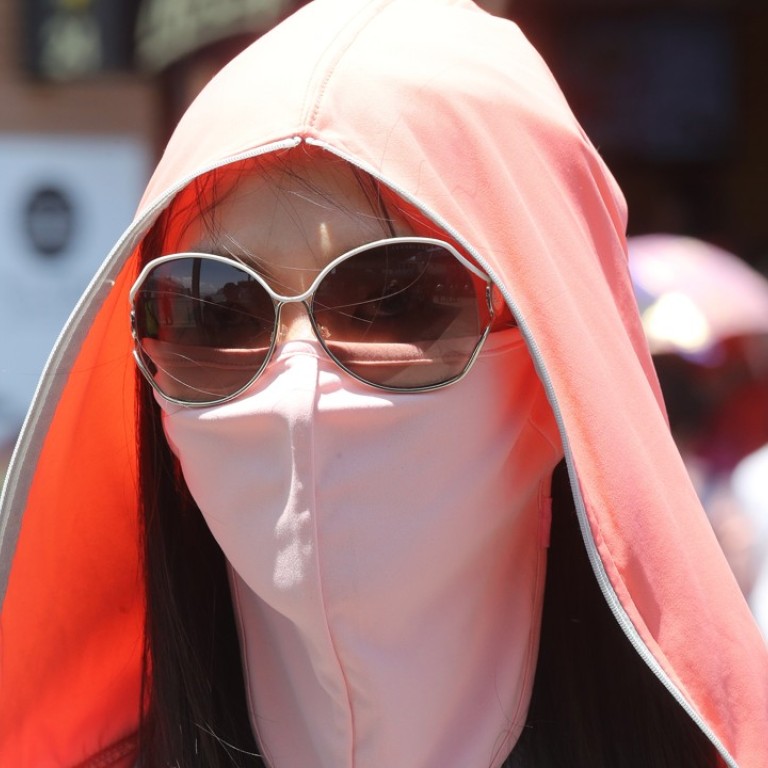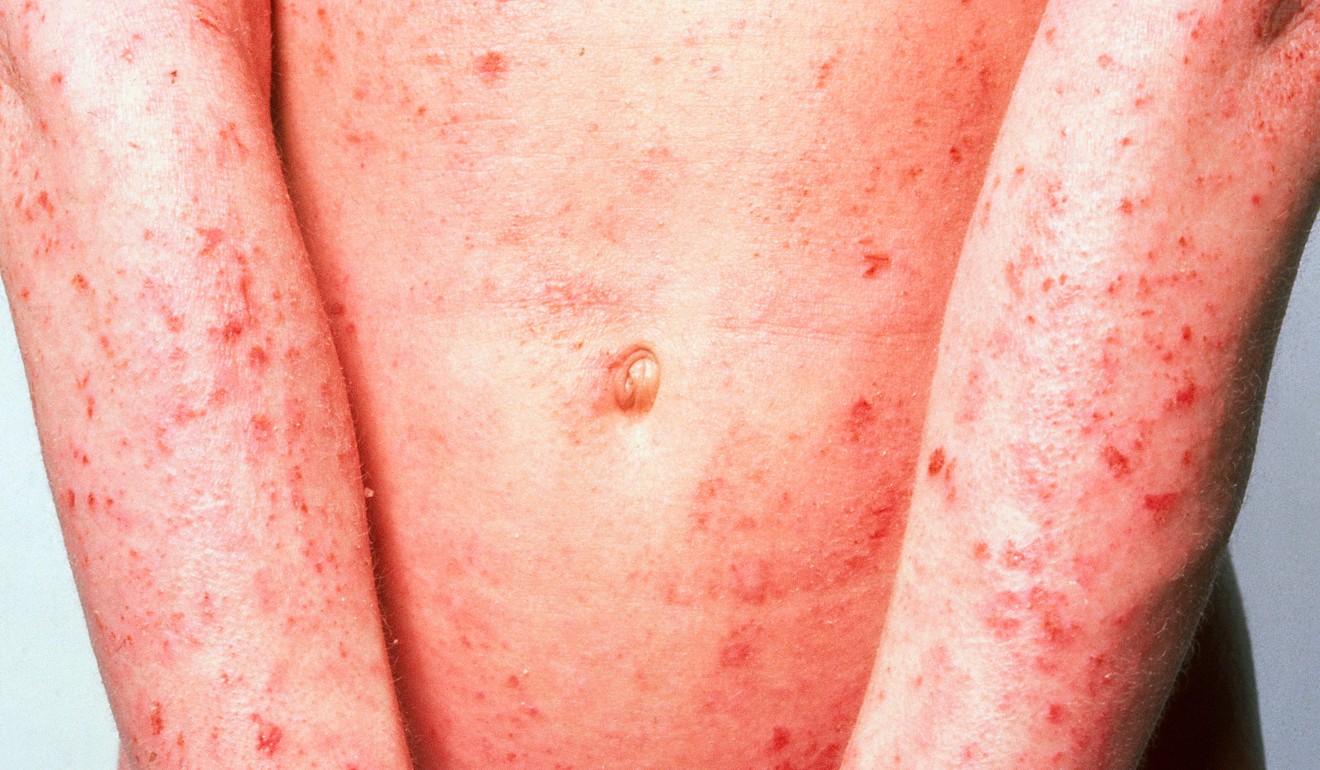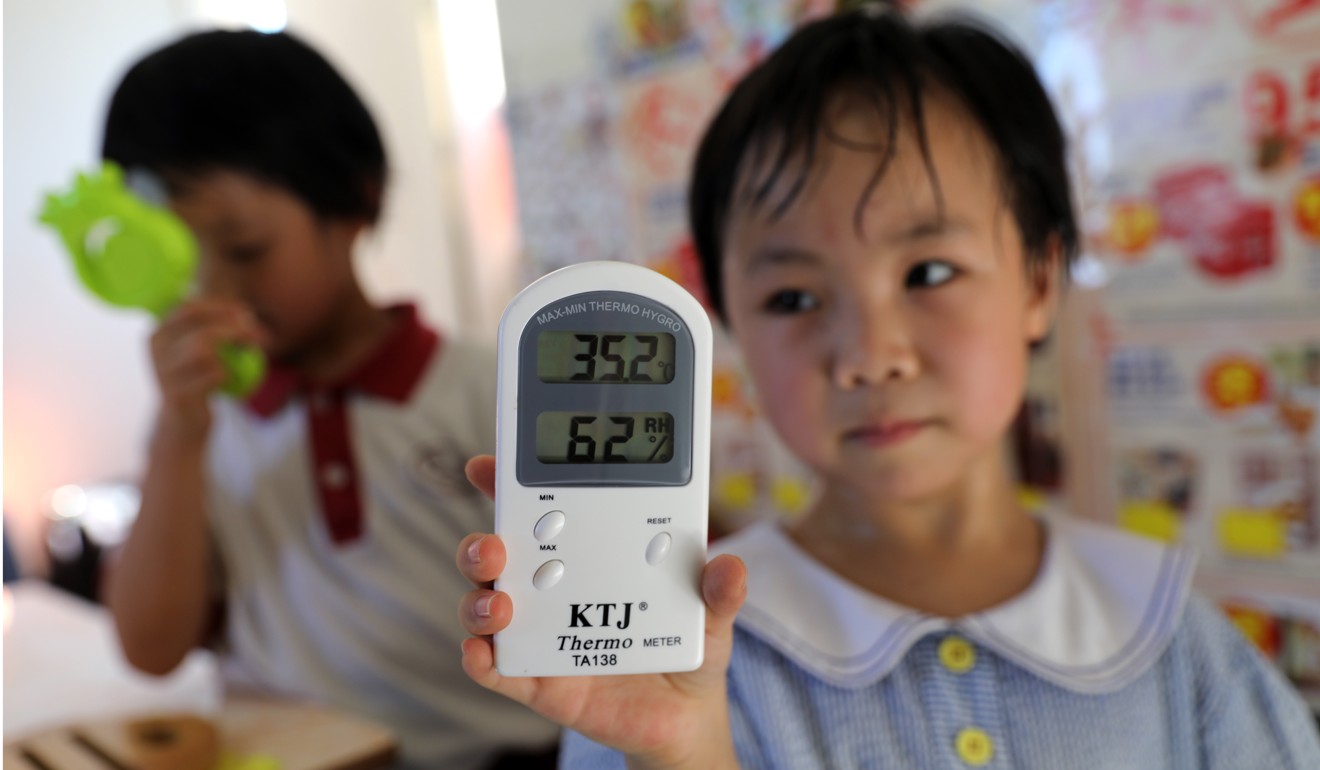
Climate change is bad for your mental health – and the situation will only get worse
From eczema sufferers to dementia patients, rising temperatures and more common extreme weather events lead to more hospital admissions for mental disorders
Ophelia escapes from Hong Kong for one to two months every summer.
The 34-year-old clay artist has been suffering from eczema since the age of three. She cannot bear the city’s hot and humid summer climate, so she flies to Europe to prevent her condition from getting worse.
UN climate report flags life-or-death warning, doubts we’ll rise to the challenge
“It seems my skin is much better in cold climates and the heat just makes it worse. Sometimes I have bad flare-ups all over my body that are hot and feverish and I just don’t feel like doing anything for a few days until it heals,” she said.
Even after visiting the doctor regularly twice a month for years, Ophelia has seen little improvement.
“The pollution in Hong Kong and the weather has certainly become a lot more extreme throughout the years. People with eczema just don’t do well in the heat because it may make you sweat a lot and that also triggers eczema,” she said.
“I feel really bad if I have a flare up … sometimes it can feel like quite a hopeless and endless situation that will never get better. I had a really bad one that lasted a week and it didn’t calm down and I just hated it – what’s the point of living if life is like this?”

Ophelia is among the 20 per cent of Hongkongers who suffer from eczema, according to the Hong Kong Allergy Association. As signals of climate change continue to emerge, especially rising temperatures, eczema patients are expected to find the hot and humid city ever more unbearable.
In late July, Japan recorded a national temperature record of 41.1 degrees Celsius (106 degrees Fahrenheit) in a heatwave that caused hundreds of deaths, while Norway, Sweden, Canada and California also recorded new temperature highs this summer. Hong Kong, meanwhile, recorded the most scorching month of May in over a century.
The annual number of hot nights over 28 degrees and hot days over 33 degrees in Hong Kong are expected to grow significantly in the 21st century, according to the Hong Kong Observatory. It predicts that the annual number of hot days in Hong Kong will double in 50 years to close to three months in a year, while that of hot nights will surge from 80 to over 140 a year.

More heatwaves also mean a greater risk of mental illness. A study published in April this year by Professor Emily Chan Ying-yang, director of the Collaborating Centre for Oxford University and the Chinese University of Hong Kong for Disaster and Medical Humanitarian Response, revealed that the higher the temperature, the higher the number of hospital admissions related to mental disorders.
“High temperature was significantly associated with an increased number of mental disorder hospitalisations in a subtropical urban city with average temperatures above 21 degrees Celsius,” Chan wrote in the report.
In 2017, the average temperature from May to September was above 28 degrees. The city also broke eight high-temperature records during the whole year.
[People above 75], their families and organisations for them need to be aware and take precautionary measures to alleviate the effect of hot weather to their mental illness
The group exposed to the highest risks are seniors, according to Chan. “The association was stronger among people above 75 years old. With the collective effect of global warming and ageing population, the number of heat-related mental disorders may increase and may further intensify the disease burden across the public health, economic, and societal contexts,” the report warned.
It also noted that an extremely high level of nitrogen dioxide, a prominent pollutant, is related to a higher risk of transient mental disorders, including anxiety.
Heat is not the only factor in mental disorders induced by climate change. In 2016, Professor Helen Berry from the University of Sydney uncovered a relationship between humidity and distress. In a research article, she wrote: “When average maximum monthly temperatures exceeded 29 degrees Celsius, the marginal effect of humidity on distress became significant and positive. At 30 degrees Celsius, a one unit increase in humidity was associated with a 0.4 per cent increase in the occurrence of high or very high distress.”
Hong Kong is notorious for its high humidity, with the average annual humidity figure of 77 per cent. “The situation is projected to worsen in the future, as the global temperature is projected to be increasing, which is associated with worsening mental health problems,” Professor Chan told the Post.
Heat: the next big inequality issue, from China to Canada
Mental illness has long been a hidden problem among Hong Kong’s over 7.4 million people, with one in seven people suffering from mental disorders, according to the Hong Kong Mental Morbidity Survey 2010-2013.
The demand for psychiatric services has been on the rise, with the number of patients with mental illness growing from 187,000 in 2011-12 to over 220,000 in 2015-16. Yet while the Hospital Authority can arrange for an urgent case to see a psychiatrist in a week or less, for stable cases the waiting time can stretch to nearly two-and-a-half years depending on the hospital district.

Hong Kong also has a shortage of psychiatrists. Only 330 are working in the public sector and about 100 specialists in the private sector – a far cry from the World Health Organisation’s recommendation of one doctor meeting the needs of every 100,000 individuals.
Dementia, a decline in mental ability usually found among seniors, is expected to hit hard in the coming years. The number of people with dementia in Hong Kong now stands at about 100,000, but will balloon as the population ages. Currently, those over age 65 currently account for 16 per cent of the city’s population, but by 2041, estimates from the government showed that nearly one-third of Hongkongers will be in that age bracket.

“They [people above 75], their families and organisations for them need to be aware and take precautionary measures to alleviate the effect of hot weather to their mental illness,” Professor Chan wrote in a recent column in a local Chinese-language newspaper.
Brace yourself for five exceptionally hot years, climate scientists say
She suggested seniors engage in activities in cool indoor venues with air conditioning and fans, or in the evening. They should also drink enough water to stay hydrated.

